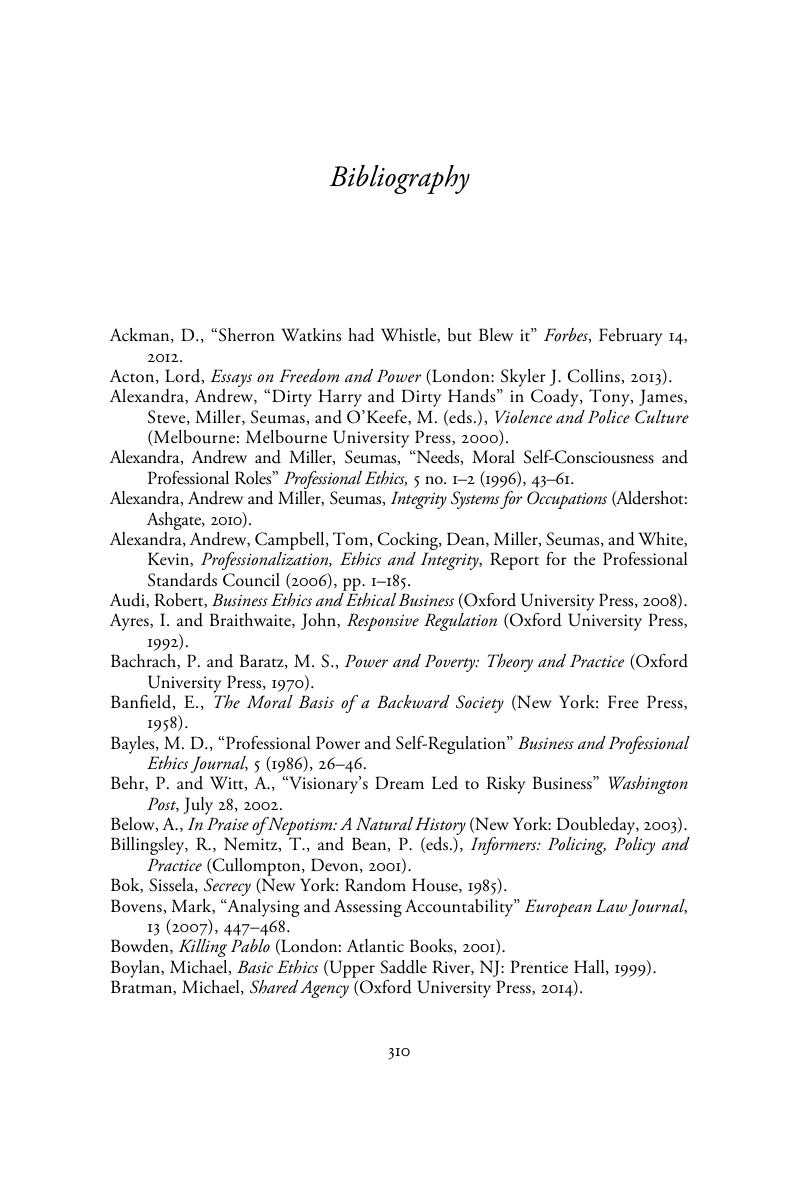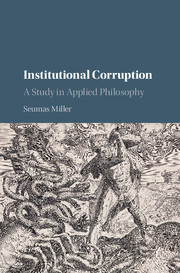Bibliography
Published online by Cambridge University Press: 28 September 2017
Summary

Information
- Type
- Chapter
- Information
- Institutional CorruptionA Study in Applied Philosophy, pp. 310 - 319Publisher: Cambridge University PressPrint publication year: 2017
